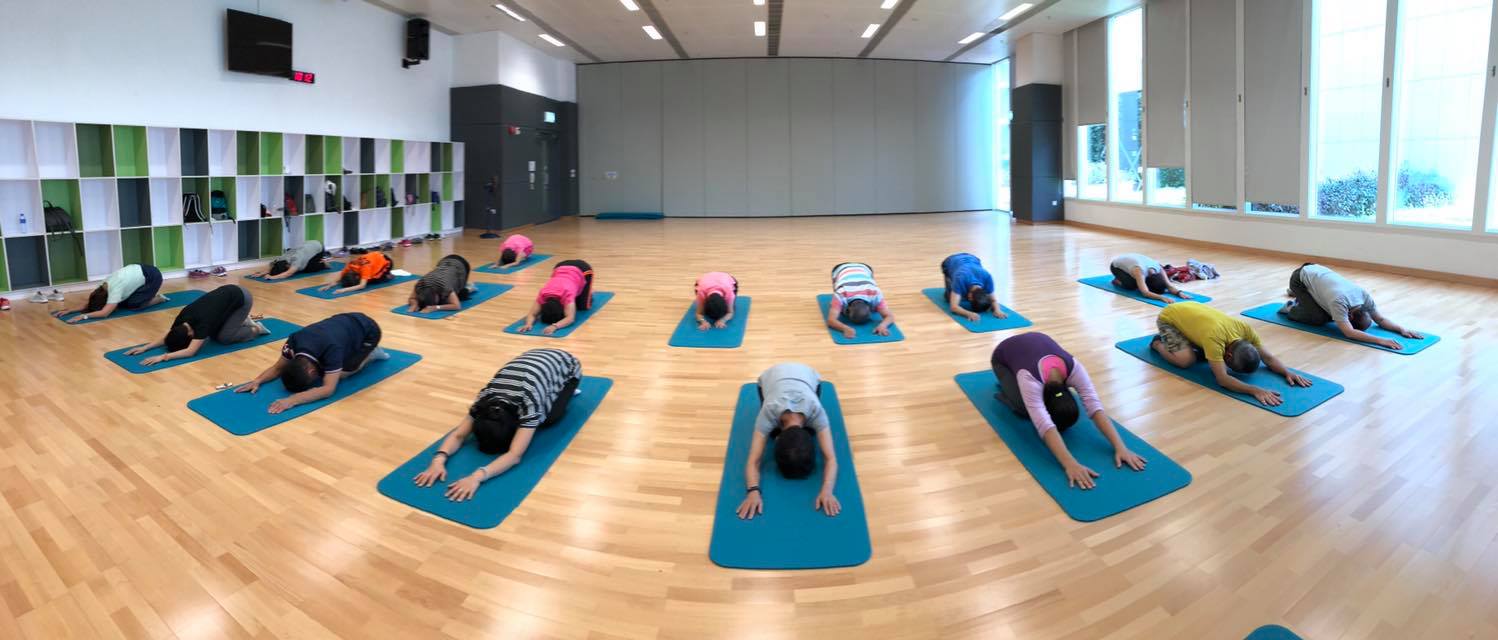 Neurobiology
Neurobiology
Mindfulness yoga relieves anxiety and depression for Parkinson’s patients
One out of every two patients with Parkinson's disease (PD) experience anxiety and depressive symptoms. Our study unraveled that mindfulness yoga that teaches mindfulness, along with physical training, appears to be well suited for stress and symptom management for PD patients.

A participant from the mindfulness yoga program once said: "Many exercises required continual movements of the body. While yoga keeps your body moving, it trains your mind to become still in the present moment. Yoga grants me the full awareness of my body and mind, non-judgmentally. Such equanimity is something I didn't expect and appreciated most."
Around the world, Parkinson's Disease (PD) affects 1-2 percent of the elderly over 65 years old. This condition leaves many of them with degenerating motor skills but also anxiety and depression. Exercise can help, but until now, most research has focused on the benefits of managing physical symptoms. Our study shows that mindfulness yoga may be even better because it offers both physical and mental benefits.
Our study randomly assigned 138 patients with mild-to-moderate PD to participate in one of two programs. The first being a stretching and resistance training program to improve motor symptoms and mobility. The second, a mindfulness yoga program that taught mindfulness along with physical exercise. We excluded participants who could not stand unaided, could not walk with assistance or were receiving any psychiatric treatment, including medications.
Each group met once a week over eight weeks at a center run by the Hong Kong Society for Rehabilitation. The stretching and resistance training group did 60 minutes of exercise that focused on motor skills and symptoms. The mindfulness yoga group did 90 minutes, which involved different activities. Breathing exercises, such as "lion" breathing, which stimulates facial expression - a goal for PD patients. A yoga sequence, such as a modified sun salutation, focused on training both sides of the body. Finally, mindfulness meditation, such as body scan, to cultivate non-judgmental awareness.
We conducted baseline surveys and neurological examinations of the patients' physical and mental health, before the program, at the end of the eight weeks, and three months after that. Primary outcomes were anxiety and depressive symptoms measured by the Hospital Anxiety and Depression Scale. Secondary outcomes included the severity of motor symptoms using the Movement Disorder Society - Unified Parkinson's Disease Rating Scale (MDS-UPDRS), functional mobility using the timed up and go test, spiritual well-being in terms of perceived affliction and equanimity (non-attachment to pleasure or pain) using the Holistic Well-being Scale, and health-related quality of life using the Parkinson's Disease Questionnaire-8.
We found that the mindfulness yoga group had significantly better outcomes related to anxiety, depression, spiritual well-being, perceived hardship, and other quality of life measures. And the physical benefits were similar to the stretching and resistance training group. Such improvement lasted for at least three months.
The research findings suggest that mindfulness yoga participants not only performed better but also perceived a better sense of psycho-spiritual well-being. A critical factor in this perception is acceptance. By learning to relate non-judgmentally to their physical symptoms, emotions, and thoughts, they develop new coping skills that cultivate openness, acceptance, and resilience to these adversities. So when they have bad days in terms of symptoms, they can better manage these symptoms.
Living with PD demands continuous adjustment and coping with its physical deterioration and psychosocial consequences. It's a lifelong journey of learning to manage their illness and maintain a sense of value and meaning in life, despite the symptoms and their impact. By adopting a mind-body approach such as our mindfulness yoga program, patients are much better positioned to reframe their illness journey than through physical training alone. Future studies should continue to examine the effects and implementation of psychologically informed physical therapy for chronic illness rehabilitation.
Original Article:
Kwok J, Kwan J, Auyeung M et al. Effects of Mindfulness Yoga vs Stretching and Resistance Training Exercises on Anxiety and Depression for People With Parkinson Disease. JAMA Neurol. 2019;76(7):755.Next read: Deep brain-mediated effects of stress on sleep and immunity by Shi-Bin Li , Luis de Lecea
Edited by:
Massimo Caine , Founder and Director
We thought you might like
Our cell's “protein factory” can decrease fats to promote lifespan
Sep 18, 2020 in Health & Physiology | 3.5 min read by Ryo Higuchi-SanabriaWhere mind meets body: a master brain circuit for stress responses
Oct 21, 2020 in Neurobiology | 4 min read by Naoya Kataoka , Kazuhiro NakamuraMore from Neurobiology
New, smaller-than-ever devices to help us understand how our brain works from the inside
Nov 8, 2024 in Neurobiology | 4 min read by Filippo DonatiCan we use a magnet to see brain inflammation?
Sep 25, 2023 in Neurobiology | 4 min read by Raquel Garcia-Hernandez , Santiago Canals , Silvia de SantisSurprising Behavior Changes in Genetically Modified Syrian Hamsters
Aug 30, 2023 in Neurobiology | 4 min read by Susan Lee , Kim Huhman , Jack TaylorTo achieve goals, we definitively need our neurons
Mar 10, 2023 in Neurobiology | 3.5 min read by Julien CourtinThe Impact of SARS-CoV-2 on the Brain: It Is All in Your Head
Feb 15, 2023 in Neurobiology | 3.5 min read by Meredith G. Mayer , Tracy FischerEditor's picks
Trending now
Popular topics


